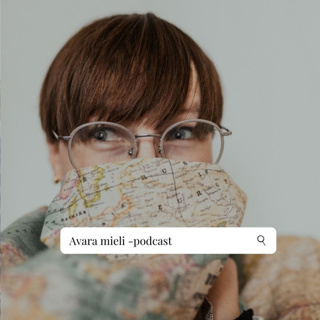
017 - Talking about the Future: Will or Going To?
There are two ways to talk about the future in English: will/won't and going to. Use going to for plans/arrangements Use will for promises, offers, and decisions made in the moment Use either will or going to for predictions Click here for the episode text - http://www.espressoenglish.net/grammar-in-use-willwont-vs-going-to/
14 Tammi 20155min

016 - British English vs. American English Vocabulary
This is a story about the daily life of New York Nate, who lives in the United States; and London Laura, who lives in England. As you can see, they have very similar lives… but the vocabulary words they use are very different! Click here for the episode text - http://www.espressoenglish.net/british-english-vs-american-english-vocabulary/
14 Tammi 20158min

015 - Linking Words in English: Contrasting Ideas
Using "linking words" can improve your spoken and written English by helping you form longer, more complex sentences. In today's lesson, you'll learn how to use: but / however although / even though despite / in spite of while / whereas / unlike Click here for the episode text - http://www.espressoenglish.net/linking-words-contrasting-ideas/
11 Tammi 20156min

014 - Difference between SAY, TELL, and SPEAK
If you frequently confuse the words SAY, TELL, and SPEAK, you’re not alone – these are some of the most commonly confused English words! In this lesson, I’ll teach you the rules for the difference between say, tell, and speak. Click here for the episode text - http://www.espressoenglish.net/difference-between-say-tell-and-speak/
11 Tammi 20156min

013 - Extreme Adjectives
Adjectives are words that describe the qualities of something. Some adjectives in English are gradable - that means you can have different degrees or levels of that quality. For example, the weather can be a little cold, rather cold, very cold, or extremely cold. Extreme adjectives or non-gradable adjectives are words that mean “extremely + adjective” – for example, “freezing” means “extremely cold.” The weather can’t be “a little bit freezing” or “very freezing” – because the word “freezing” itself automatically means “extremely cold.” Click here for the lesson text - http://www.espressoenglish.net/extreme-adjectives-in-english/
11 Tammi 20158min

012 - How to Start a Conversation in English
Do you have difficulty speaking English? Sometimes the hardest part is simply starting a conversation. Learn these expressions for starting a conversation in English in any situation – formal or informal, at work, school, or other contexts! Click here for the episode text - http://www.espressoenglish.net/how-to-start-a-conversation-in-english/
11 Tammi 20158min

011 - English Vocabulary Words for Describing Appearance
In this lesson you’re going to expand your vocabulary with 37 words to describe a person’s appearance. Let’s begin with the word beautiful – in English, this word is mostly used for women. We use the word handsome for men. To describe beautiful women, we also have the words pretty, lovely, gorgeous, and stunning – “stunning” means extremely beautiful, like a woman who is so beautiful that she attracts a lot of attention. Listen to the lesson for the rest of the vocabulary words! Click here for the episode text - http://www.espressoenglish.net/37-english-words-for-describing-a-persons-appearance/
11 Tammi 20155min

010 - 60 Common English Collocations with DO and MAKE
These two words can be confusing, but I’ll teach you the difference – and teach you 60 common collocations with example sentences to help you! Use DO for actions, obligations, and repetitive tasks. Use MAKE for creating or producing something, and for actions you choose to do. DO generally refers to the action itself, and MAKE usually implies that there is a result/product. For example, if you “make breakfast,” the result is an omelet! If you “make a suggestion,” you have created a recommendation. Click here for the episode text - http://www.espressoenglish.net/difference-between-do-and-make-60-collocations/
11 Tammi 201514min






















